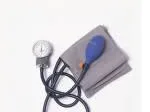Perhaps a family member had an inherited form of cancer and you want to know if you share the same gene, or maybe you’re experiencing changes in your health and would like a clear explanation – these days you can be tested for just about everything.
“There’s a wide range of tests and this helps with the diagnosis and treatment of a number of conditions, often at an earlier stage,” gastroenterologist Dr Farzan Bahin explains.
Whether it’s for screening, to confirm a diagnosis, or determine the likelihood of developing a disease, Dr Bahin says modern medical testing procedures have revolutionised the healthcare landscape. But while many of these new tests have obvious benefits, others are not so evident and caution may be wise.
“It comes back to being well informed about the types of tests available so they’re not ordered unnecessarily, preventing stress and anxiety,” he says.
Genetic testing
Who does it? Pathologist or clinical geneticist.
What is it? This scientific test is used to clarify your risk of developing certain cancers and diseases. It can be used to identify abnormal genes, which could lead to genetic disorders such as breast and colon cancer. Testing generally requires blood, but a sample can also be collected from a cheek swab.
“It’s a valuable form of testing that’s going to become more common and not necessarily just for those with a family history of disease,” genetics counsellor Ivan Macciocca reveals.
Do you need it? Maybe. “While the number of genetic tests available is enormous, you do need to weigh up whether or not you need them,” Ivan says. “There’s no point in testing for something you can’t treat. In some cases, though, knowing your genetic status can influence your choices about your own healthcare and management.”
If you think you might be interested in testing, talk to your GP. “Your doctor can refer you to a testing facility and a genetic counsellor who can help you reach a decision that’s appropriate for you,” Ivan explains.
Cost? $100 to $2000

Hair tissue mineral analysis
Who does it? Naturopath.
What is it? A non-invasive procedure, it provides information about your body’s cellular activity, which reflects the state of nutrition and metabolism.
“It’s a measure of toxic and nutrient minerals in your body,” naturopath Karina Francois says.
The test is done by collecting a hair sample, which is sent away for analysis. You can also do it at home with a kit.
“The reason hair makes an ideal medium for testing is due to its structure, which remains unchanged, and minerals become fixed to it,” Karina says.
Do you need it? Yes. “Everyone can benefit from hair analysis,” Karina says. It can be used to check for poisoning caused by metals such as mercury, as well as common dietary deficiencies.
“Rather than self-diagnosing and taking a supplement, it’s more accurate to find out if you’re deficient before buying any products,” she advises. “Once you get your results, your clinician can explain whether vitamin and mineral supplementation is suitable, as well as your food choices, and how to get rid of toxic chemicals.”
Cost? $155
Food intolerance test
Who does it? Naturopath, GP, specialist immunologist or allergist.
What is it? This diagnostic test could help determine if you’ve developed an intolerance to something you consume on a regular basis.
“While there are a number of versions on the market, such as the skin-prick assessment and allergen-specific blood test, most check for reactions to common foods through the detection of specific antibodies,” Karina reveals. “Whichever test you choose, have it done through a trained professional so they can interpret your results and advise you on the most appropriate treatment.”
Do you need it? Perhaps. “Food intolerance testing may be beneficial if you suffer from recurrent migraines, irritable bowel syndrome, inflammation, bloating, diarrhoea and constipation,” Karina explains.
Food sensitivities may also trigger skin rashes, poor immunity and serious autoimmune disorders, such as Crohn’s and Hashimoto’s disease.
Cost? $100 to $390

Urea breath test
Who does it? Pathologist or gastroenterologist.
What is it? Approved by Medicare, this procedure reports the likelihood of the presence of the bacteria Helicobacter pylori (H. pylori) in the stomach lining, which is responsible for a number of non-specific gut symptoms, including bloating, bad breath and lack of appetite.
“The test involves swallowing a capsule containing radioactive urea, then measuring carbon dioxide in the expelled air as you breathe out,” Dr Bahin says.
“The higher the reading, the greater the likelihood of you having this bacteria, but it doesn’t prove H. pylori is the cause of your symptoms.”
Do you need it? Yes. It’s estimated that as much as 50 per cent of the world’s population is infected with the H. pylori bacteria, and most aren’t even aware of it.
“If left untreated, H. pylori is considered a pre-cancerous condition as it can cause chronic inflammation, which significantly increases your risk of developing gastric ulceration and gastric cancer,” he says.
Cost? $85
Organic acid test
Who does it? Naturopath.
What is it? By assessing metabolic by-products (also referred to as organic acids) in urine or saliva, this test can help identify nutritional and metabolic deficiencies.
“It provides the necessary biochemical information to help you determine what your vitamin, mineral and amino acid requirements are in relation to your health status, genetic tendencies, age and ability to fight free radicals,” Karina says.
Do you need it? Maybe. “This test is perfect for those seeking to fine-tune or increase a supplement program’s effectiveness,” she adds.
Abnormal levels of organic acids can also be related to a high number of specific deficiencies and toxins.
“A single urine or saliva sample can help identify nutritional and metabolic deficiencies related to a number of conditions, including lethargy and low libido,” she says.
Cost? $400


